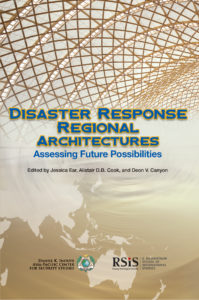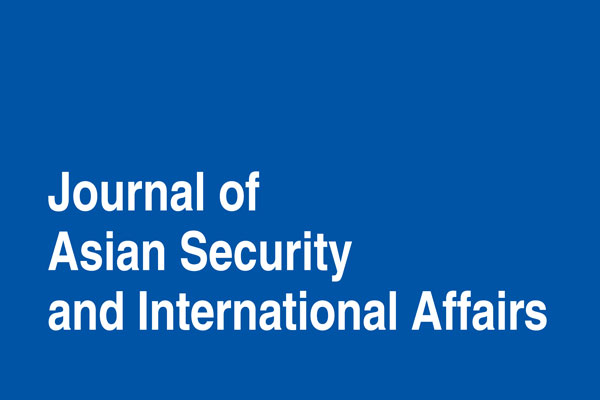
Click here for high-res version
“Disaster Response Regional Architectures: Assessing Future Possibilities” is a new joint publication by the Daniel K. Inouye Asia-Pacific Center for Security Studies and the S. Rajaratnam School of International Studies.
The concept for the book, edited by Jessica Ear, Alistair D.B. Cook, and Deon V. Canyon, originated at a three-day humanitarian assistance and disaster relief workshop, held in Bangkok, Thailand, July 2017.
According to Ear, the HADR cooperation landscape in the Indo-Asia-Pacific is becoming more complex as the growth of frameworks and mechanisms are often developed in isolation from other existing coordination efforts. These areas of potential duplication can hamper efficient and effective live-saving assistance. Recognizing these challenges, the Daniel K. Inouye Indo-Asia-Pacific Center for Security Studies (DKI APCSS) and the S. Rajaratnam School of International Studies (RSIS) at Nanyang Technological University, Singapore organized a blended practitioner and academic workshop focused on the future development of disaster response regional architectures.
This report provides guidance and fosters ongoing regional dialogue to inform and assist leaders to achieve greater disaster response collaboration through improved regional architectures and cooperation. The book is broken into three sections: 1) Sub-Regional Response Issues, Challenges, and Cooperation Developments; 2) Case Studies of Coordination and Cooperation; and, 3) Towards a More Collaborative Future: Optimizing Regional Responses and Cooperation.
Case studies include Philippines Typhoons Haiyan and Hagupit, Nepal Gorkha Earthquake, Fiji’s Cyclone Winston, and Japan’s Disasters.
Dr. Miemie Winn Byrd, Dr. Deon V. Canyon, Dr. Alistair D.B. Cook, Jessica Ear, Dr. Lina Gong, Seongwon Han, Oiroa Kaihau, Lloyd Puckett, Vishalini Suresh, David Shanahan and Nozomu Yoshitomi all contributed to this book.
The views expressed in this article are those of the authors and do not necessarily reflect the official policy or position of the Daniel K. Inouye Asia Pacific Center for Security Studies, the Department of Defense, or the U.S. Government.
-END-









Leave A Comment